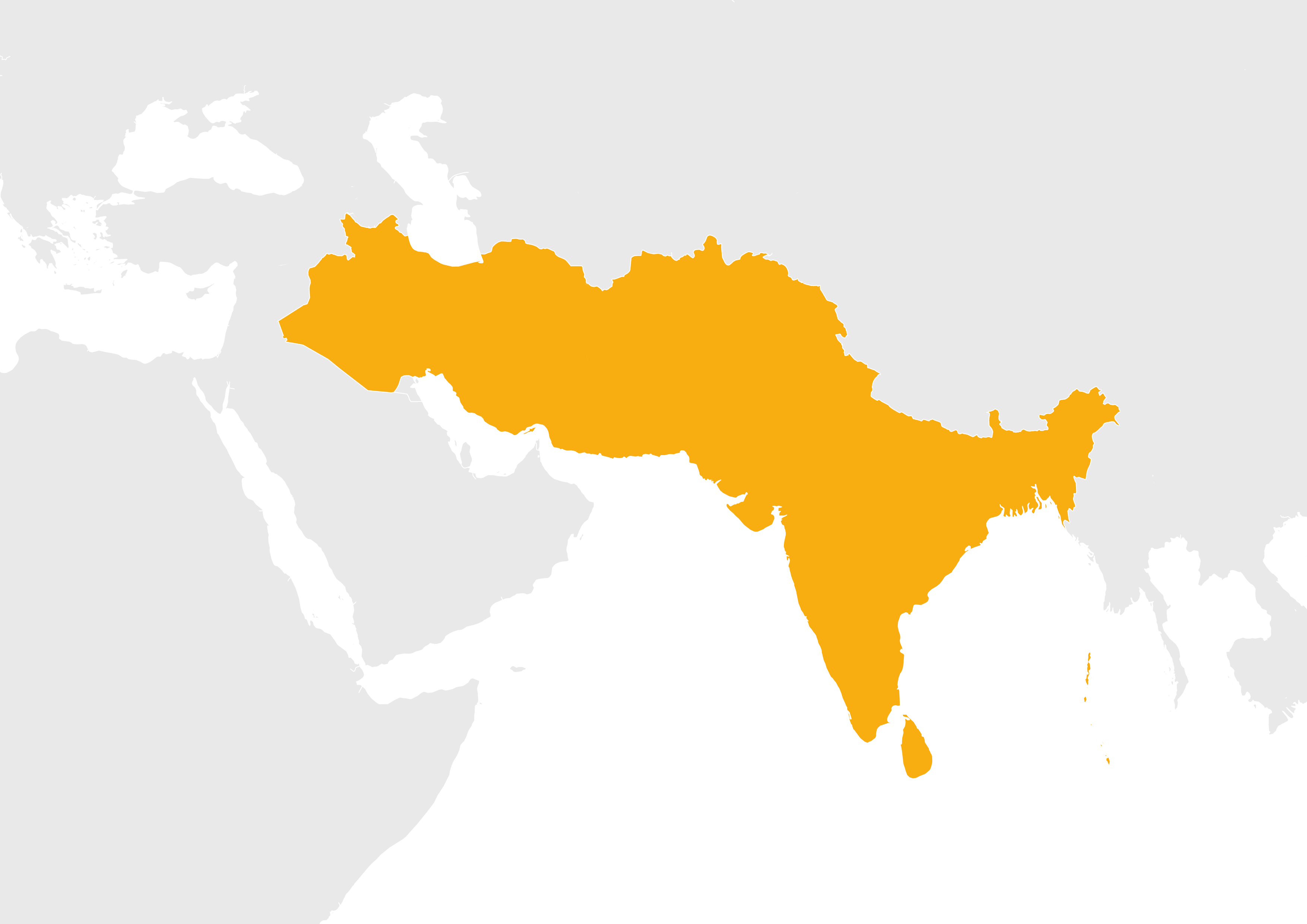Home › Our Work › Ongoing Projects › The Silk Routes Region
The Silk Routes Region
The historic Silk Road stretched from the most Eastern parts of Asia to Europe; it connected continents, countries and people in trade, intellectual exchange and brought mutual cultural enrichment. Its many different routes – the Silk Routes – have given name within the framework of the Budapest Process to the Silk Routes region, covering Afghanistan, Bangladesh, Iran, Iraq and Pakistan.
In this region, migration has been a prominent phenomenon since former times. In the more recent past, several migratory movements continued to take place within the region and from the Silk Routes countries to neighbouring regions due to war, conflict and economic reasons as well as family ties and ethnic connections. These include forced migration between Afghanistan, Iran and Pakistan, between Bangladesh and Pakistan, between Iran and Iraq and from all five countries towards Europe, Australia and elsewhere.
Migratory movements have also been propelled by economic reasons and include labour migration among all countries of the region, including between those at the far ends of the Silk Routes such as Bangladesh and Iraq. After several decades of protracted refugee situations in the region and with increasing flows of irregular migration from and along the Silk Routes, return migration and irregular migration have increasingly become issues that need to be addressed by the countries of the region. Whilst these two topics are high on both the regional and international agenda, opening avenues for regular migration is a priority for the countries of the region.
The size, duration and other characteristics of the migration flows from and within the region necessitate a move from the humanitarian/emergency response, whilst still ensuring that humanitarian needs are met, to a longer-term planning and policy making that encompasses a more holistic approach towards migration management and international cooperation.
Since the Silk Routes countries started to participate in the Budapest Process in 2010, dialogue and operational cooperation that have taken place clearly demonstrate the needs for:
- longer term vision and policy making
- substantial capacity building
- enhanced inter-ministerial cooperation
- development of the knowledge base and data management on migration
- improved awareness raising of the public on migration issues and
- better international cooperation.
Funded by the European Union and others, the International Centre for Migration Policy Development (ICMPD) has started implementing various migration-related projects in the Silk Routes countries in 2011 already. These projects build up on each other, continuously grow bigger, and are based on the good long-term relationships, which ICMPD has established with the governments of the region’s countries over the decades and years.
